|
Larry and Glenda Legler think the state should be using much of its nearly $33 billion surplus to give Texans a break on their property taxes.
Larry Legler said, "The state's got an ungodly amount of money that they need to do something with." But after months of promises to do that, Republican leaders still can't agree on the way to provide relief. "That's what's getting frustrating." Governor Greg Abbott prefers ending the school maintenance and operations or "M&O" portion of your property taxes over ten years. That portion alone is about 42% of your property tax bill. To make that happen, the state would shift sales tax, other state revenues, and surplus money to pay for public schools. That would allow the state to gradually reduce the rate for M&O property taxes until they're eliminated altogether. Vance Ginn, a conservative economist and president of Ginn Economic Consulting, has pushed this idea for years. "It's the only way that you can get to $0 school district property taxes is by buying down those rates because that rate can go to zero which zero out of a hundred-dollar valuation for a home is $0. And so that is still $0, and you've eliminated that tax." But Lt. Gov. Dan Patrick and the Texas Senate have a different plan. While it uses more state revenues and less property taxes to pay for schools, it would also increase homestead exemptions for most homeowners from $40,000 to $100,000. And for homeowners over 65, it would raise homestead exemptions from $70,000 to $110,000. Patrick said it would provide nearly double the savings for homeowners than the Governor's plan. CBS News Texas asked Patrick earlier this week if he doesn't support eliminating the school property tax. He said, "You can't get there. You only have sales tax to prop up a state of 30 to 35 to 40 million people the next decade. What happens when we have a decline and sales taxes go down? You'll have no money to pay your bills. You can't be a one-legged horse." Ginn disagreed. "The Comptroller said we're going to have about $27 billion in the rainy-day Fund. The rainy-day fund is there to cover unforeseen revenue shortfalls which would be exactly this sort of situation." Abbott said 30 business and other groups support his plan. The Leglers said because they're seniors, they prefer the plan from Patrick and the Senate. "Everything's gone sky high and when people can't get the medications they need, which is not our case, but many people we know, or they can't afford groceries, a loaf of bread at the grocery store, we got a problem." Both the House and Senate have approved different legislation, and until they pass the same bill, the Governor cannot sign it into law. Abbott will speak Friday about this, and other issues related to the regular and special legislative sessions. Originally published by CBS Texas.
0 Comments
News: Property Taxes Primed for a Special Session After Appraisal Reform Dispute Stalls Out5/29/2023 State leaders promised “historic” property tax relief this session, but though it is near the finish line, it will not make it past the checkered tape before the body adjourns sine die on Monday.
Last summer, Gov. Greg Abbott called on the Legislature to appropriate “at least half” of the then-$27 billion projected budget surplus to provide “the largest property tax cut ever in the history of Texas.” The comptroller’s January Biennial Revenue Estimate increased that total to $32.7 billion in the state treasury and $27 billion in the Economic Stabilization Fund, also known as the state’s savings account. That’s a lot of tax dollars to disburse, and number one on Abbott’s list was property taxes — which was also high on the list of both chambers. But after a lengthy, attention-grabbing impeachment proceeding against Attorney General Ken Paxton on Saturday afternoon, the clock ticked on toward the midnight deadline to distribute the conference committee report for the last-remaining property tax proposal. And then, some Sunday evening scrambling on a last-minute deal turned out to be more smoke than fire — the House conferees announced the signing of a deal last night, and posted a picture of them waiting for the Senate’s conferees to come sign it, but that ultimately did not happen. Details of that blueprint have not been disclosed as both sides have kept their cards close to their chest. The Texan can confirm that plan included the $12 billion for rate compression, a $70,000 standard homestead exemption, a $100,000 elderly and disabled homestead exemption, and a 7.5 percent appraisal cap on all real property. After a hastily convened meeting with Lt. Gov. Dan Patrick and Abbott, Speaker Dade Phelan (R-Beaumont) made a beeline for the House dais and adjourned the body until Monday morning with no deal announced on marquee property tax relief. Discussions continued into Monday morning but no deal was struck — appraisal caps being the point of insurmountable disagreement. Abbott tacitly weighed into the debate, gesturing at putting rate compression above all else, but it did little to move the needle one way or the other. The Texas House passed a revamped version of Senate Bill (SB) 3 on May 19 — a plan that included $12 billion for new rate compression and the 5 percent appraisal cap on all property from its original plan. But it also included a $100,000 homestead exemption, double what the Senate included in its proposal. Ultimately, the two sides could not coalesce on a compromise; the House dug its heels in for an appraisal cap reduction and extension, while the Senate dug its heels in against it. The ramped-up homestead exemption was not enough to entice the upper chamber to swallow the appraisal cap pill. Lt. Gov. Dan Patrick has maintained it to be a total non-starter in the upper chamber. As passed by the House, SB 3 would have amounted to $16.3 billion in property tax curtailment, plus the $5.3 billion already in the budget to maintain previous levels of compression. Because of this stalemate, and the emphasis Abbott has placed on it, property tax relief is sure to be on the list of issues for the coming special session — expected, but not yet confirmed, to start Tuesday. Property tax relief was on the governor’s list of emergency items at the beginning of the session. Even with the appraisal reform stalemate, there is a starting point of common ground between the chambers. The 2024-2025 state budget, approved by both chambers over the weekend, earmarks $17.3 billion for rate compression — $5.3 billion to maintain previous levels and $12 billion to add to it. The budget has no line item for homestead exemption increases and the appraisal cap extension would not require any financial injection. When the two bodies reconvene, it’s unclear how this stalemate could be resolved other than both just throwing up their hands and moving forward only with the rate compression — the aspect they both agree on. The previous record for the largest property tax cut is $14 billion in the mid-2000s. Both chambers of the Legislature have said their plans surpass that line — including the $5.3 billion to maintain current levels. Critics of that claim — such as Vance Ginn, former chief economist for the Texas Public Policy Foundation — have set the line at $20 billion in today’s dollars accounting for inflation, and also say that the entire sum of dollars going toward property tax relief should be allocated to compression. On top of this, add in the fact that to maintain levels of compression next biennium, the state will have to allocate the same amount of money toward it. Otherwise, tax bills will jump. Before the House adjourned sine die, Lt. Gov. Dan Patrick issued a letter asking for Abbott to include the Senate’s property tax plan — a $70,000 standard homestead exemption, $30,000 elderly and disabled homestead exemption, a $25,000 business personal property tax exemption, and a business inventory tax credit — among a litany of other priorities. Despite the appraisal stalemate running out the clock on this session, the Legislature will quickly have another go at the issue and the chance to fulfill the promises made before and during the 88th regular session. Originally published by The Texan. In Texas, widely viewed as one of the reddest states in the nation, conservatives are working hard to get a large property tax relief package, an education savings account (ESA) program, and other landmark reforms to Governor Greg Abbott’s (R) desk before the state legislature adjourns its 88th regular session on May 30.
Governor Abbott has made school choice a top priority this year, barnstorming the state for months and speaking at numerous events in favor of providing Texas families with school choice, something that parents and children have in a growing number of states. Since the beginning of 2021, legislatures in ten states have enacted or expanded ESA programs. When Governor Ron DeSantis (R) signed legislation in March to provide universal access to ESAs in Florida, it was the fourth state to enact legislation in 2023 making ESAs available to children. Recent polling continues to show strong public support for ESAs in Texas. Anew University of Texas-Austin Texas Politics Project poll, like many previous polls, found strong bipartisan backing for ESAs among Texas voters. That poll, which was conducted in April, found 60% of Texas voters overall support the creation of an ESA program, including 75% of Republicans surveyed and 46% of Democrats. The UT-Austin poll also found majorities of black (64%) and hispanic (56%) voters support the enactment of an ESA program in Texas. Since Lt. Governor Dan Patrick (R) passed an ESA bill, Senate Bill 8, out of the Texas Senate on April 6, those pushing for school choice in Texas have been focused on the House. Legislators know they likely face a special session this summer if significant property tax relief and a bill that expands school choice in a meaningful way is not enacted before the regular session ends. Bills Conservatives Want To Fail While school choice is one of the top reforms that conservatives would like to see Texas lawmakers send to Governor Abbott this month, there are other pending bills that many conservatives and free market oriented legislators would like to see voted down or allowed to die. One such proposal that is viewed as a legislative threat by conservatives is House Bill 4602/Senate Bill 1498, legislation that would raise taxes on Texans who lend their personal vehicle out through a car sharing platform. Such platforms are relatively new, but they’ve proven popular because they expand consumer options while providing people with a new source of income. These platforms have been described by some as “AirBnB, but for personal vehicles instead of personal homes.” HB 4602/SB 1498 is part of a multi-state campaign by rental car company lobbyists who are seeking to impose higher taxes on a competitor. Rental car company representatives claim that they are at a disadvantage since they must collect and remit rental car excises taxes, while car sharing hosts do not. Yet car sharing platforms, car sharing hosts, and other opponents of HB 4602/SB 1498 point out that the playing field is already uneven, with rental car companies currently possessing their own tax advantage relative to car sharing platforms. That’s because rental car companies do not pay sales tax on the vehicles that they rent out, whereas Texans who rent out their cars through an online platform have paid sales tax on their vehicle. Critics of HB 4602/SB 1498 contend that it would further exacerbate an unlevel tax framework in favor of rental car companies at the expense of Texans. Unlike rental car companies, Texans who earn income through peer-to-peer car sharing services pay a motor vehicle sales tax. Rental car companies, meanwhile, collect gross rental receipts tax from their customers instead of paying the motor vehicle sales tax. HB 4602/SB 1498 would force Texans to remit three taxes (the motor vehicle sales tax, gross rental receipts tax, and a local stadium tax). Rental car companies, meanwhile, only have to remit two of those taxes. Opponents of HB 4602/SB 1498 point out that the majority of peer-to-peer car sharing customers (or guests) in the state are Texas residents in need of a vehicle for in-state trips. Texas residents who would be adversely affected by HB 4602/SB 1498 already help pay for local stadiums through property taxes and general sales tax payments. Rental car company lobbyists insist they’re seeking tax parity with car sharing platforms, but critics view this proposal as bad policy that would further tilt the playing field in favor of rental car companies to the detriment of many Texans. Another bill still pending in Austin that conservatives would like to see go down this month is House Bill 3395, legislation that would prohibit credit card interchange fees from applying to the tax portion of a transaction. In April, a coalition of conservative organizations sent a joint letter to Texas legislators urging opposition to HB 3395, stating that if this bill is enacted, state government “would be interfering in the free market in an attempt to control who bears the burden of collecting and remitting sales tax – risking higher costs for Texans in a time of out-of-control inflation.” “Like every government attempt to control the market, there will be unintended consequences,” the April joint letter added. “By drastically increasing the amount of transactions processed, forcing processors to create new systems, software, and even new equipment, costs for small businesses and consumers in Texas would rise.” California-Style Committee Proposed In TexasWhile heavy handed regulations like plastic bag bans and taxes are typically associated with blue states like California, they can still pop up in red states. Take House Bill 3210, legislation now pending in the Texas House of Representatives that aims to “address the proliferation of carryout bags” and “reduce a source of litter on the landscape.” HB 3210 seeks to accomplish this mission through the creation of a new committee that will “develop and implement a statewide litter program to comprehensively address litter prevention and reduction.” The committee created by HB 3210 will also “evaluate existing state laws, and any administrative rules related to those laws, that address litter.” Concerns that the committee created by HB 3210 could have negative unintended consequences were voiced at the April 20 hearing on the bill. “This committee, as proposed, should be given the ability to assist recyclers collect and process the targeted items in a cost effective manner,” said Bryan Wallace, an Alvin resident, in testimony presented to the April committee hearing on HB 3210. “However,” Wallace added, “If the goal of this committee becomes that of an enforcement agency with a punitive culture toward businesses, then I would be very opposed to using public funds to build such an organization.” The Manhattan Institute’s Brian Riedl has written about how “leading progressive bills make utopian promises of huge new benefits and then assign a commission or agency to figure out how to make it all work.” Enactment of HB 3210 would have Texas taking a similar approach. In addition to these bills that Texas conservatives would like to see defeated, there are many who believe that Republicans in both the state House and Senate are proposing to spend too much. One of those is Vance Ginn, Ph.D., an economist who has worked on public policy in Texas for a decade where he helped create the Conservative Texas Budget approach and is now a senior fellow at Americans for Tax Reform. Ginn says the current spending levels that have been proposed by both the House and Senate are too high. “The Senate and House passed two-year budgets that substantially increase from what was appropriated last session to totals of more than $300 billion,” says Ginn. “These irresponsible budgets spend too much and provide too little in new property tax relief.” “The amount of new property tax relief should be about $20 billion to be the ‘record relief’ desired by state leadership to account for inflation since the $14.2 billion in property tax relief in 2008-09,” Ginn adds. “Texas must remain competitive and not sit back on its laurels as other states are passing responsible budgets, providing substantial tax relief, and creating universal ESAs. But time is running out quickly.” While Texas conservatives are playing offense in trying to enact property tax relief and expand school choice, it’s clear they still see many legislative threats looming in the final weeks of session in Austin. If House and Senate leaders are unable to get top priorities to Governor Abbott’s desk this month, however, there is a good chance they’ll have to return to Austin this summer to address unfinished business in a special session. Originally posted at Forbes. With weeks left in the Texas Legislature’s 88th regular session, state lawmakers are working to enact the largest tax cut in the history of the nation’s second most populous state. In addition to billions of dollars worth of property tax relief, state legislators are moving to enact a number of innovative reforms before adjourning. Texas should unite to push these measures across the finish line.
Gov. Greg Abbott and leadership in the Texas House and Senate all want to pass a massive property tax relief bill but differ over the best approach. The Senate would like to raise the homestead exemption. The House, however, would rather cut the appraisal cap in half, taking it from 10% to 5%, and put more money toward rate compression than is called for by the Senate plan. Disagreements over these key details threaten to squelch planned relief. Lawmakers should work out a deal before the session ends. “Texas has a historic opportunity to provide much-needed property tax relief with nearly $33 billion in surplus for the current biennium plus extra taxpayer money available in the upcoming biennium, which should be returned to taxpayers,” noted Texas-based economist Vance Ginn, a senior fellow at Americans for Tax Reform. In addition to reducing property tax payments in a state that is home to the nation’s sixth highest average property tax burden, Texas lawmakers are also taking action to reduce regulatory costs. The House passed House Bill 2127 by a 92-55 vote on April 19. HB 2127, introduced by Rep. Dustin Burrows, R-Lubbock, and Sen. Brandon Creighton, R-Conroe, prohibits local governments from regulating products, activities, or industries in a manner that exceeds or conflicts with state law. Proponents of HB 2127, such as the National Federation of Independent Business, which represents small businesses, say it will rectify the patchwork of regulations that currently exist in Texas, which is making it more difficult for a business to operate and create jobs. “There are dozens of reasons why Texas is the best state in the country for business, but its convoluted, unpredictable, and inconsistent patchwork regulatory system is not one of them,” said James Quintero, policy director at the Texas Public Policy Foundation. Quintero says HB 2127 “brings some much-needed common sense to the system, unifying the rules for conducting business in a predictable, reliable, and efficient way to promote compliance.” Lastly, Texas lawmakers have the opportunity to make Texas the first state to ban taxpayer-funded lobbying by enacting Senate Bill 175. SB 175, introduced by Sen. Mayes Middleton, R-Galveston, would bar local governments and other political subdivisions from using taxpayer funds to hire contract lobbyists. Supporters of SB 175 note that contract lobbyists hired with taxpayer dollars frequently work against the interests of taxpayers. In previous sessions, for example, taxpayer-funded lobbyists have worked to kill property tax relief and block reforms that would have government spending grow at a more sustainable clip. This resistance to conservative priorities continues to this day, with taxpayer dollars currently being spent to lobby against Education Savings Accounts. That is why many view SB 175 as a root reform that will beget many other pro-growth reforms. Proponents of SB 175 believe it will help facilitate the future passage of tax relief, ESAs, greater spending restraint, and other pro-taxpayer reforms. As we saw with the criminal justice reform movement that started in Texas and has since swept the nation, enactment of a given reform in Texas makes it easier to pass that same proposal in other states. That’s because lawmakers in many state capitals look to Texas as a model for sound governance. As such, while passage of the aforementioned reforms would benefit Texans, their enactment will also have a positive effect nationally. Hopefully Texas lawmakers can capitalize on these opportunities before them in the remaining weeks of session and send these groundbreaking reforms to the desk of Abbott, who has made clear he wants to sign them. Grover Norquist is president of Americans for Tax Reform. He wrote this for The Dallas Morning News. Originally published at Dallas Morning News. ATR Senior Fellow Vance Ginn provided remarks at the Tax Day press conference at the House Triangle. Video of Ginn’s remarks can be viewed here. Ginn said: “It is often said that we don’t have a revenue problem, we have a spending problem. And that’s true. But also here on Tax Day, we have a tax problem. What we really need is for free market capitalism, which is the best path to let people prosper, to be able to flourish again. For people to get jobs and higher wages so they could pay for the higher inflation that’s come out of the Biden administration. And it’s just one thing after another. The latest account of this was the Inflation Reduction Act which does no such thing. It continues to raise inflation, raises the debt, and the latest estimates on this show that it will be about four times higher than what the CBO reported just last year. And a lot of this has to do with the tax credits for electric vehicle batteries, which are going to cost nearly $200 billion plus over time. This is another way that they’re infiltrating the overall size of the government through our economy throughout our lives. And fortunately, we have another way that we should go, that’s led by a lot of states that are leading the sustainable state budgets across the nation, that they should look at by spending less, and finding ways to provide tax relief and regulatory reform.“ Originally published Americans for Tax Reform. Lt. Gov. Dan Patrick, along with several senators, announced a new bill package this week designed to reduce property taxes through several different methods.
Sens. Paul Bettencourt (R-Houston), Tan Parker (R-Flower Mound), Bob Hall (R-Rockwall), Joan Huffman (R-Houston), and Charles Perry (R-Lubbock) joined Patrick in a press conference on March 14. The package included three bills that would offer a combined estimated $16.5 billion in property tax relief. Lt. Gov. Patrick opened the press conference and invited Sen. Bettencourt to walk through the proposals, saying, “No one knows more about property taxes.” “What we have is tremendously good news for Texas taxpayers today,” Bettencourt said. “It’s important to know that we’re touching every taxpayer, every homeowner, every business owner, with needed tax relief,” Bettencourt claimed. “We’re spending the money as wisely as we can to get the maximum tax relief possible — and this plan has eye-popping numbers.” Senate Bill 3, filed by Bettencourt, would increase the homestead exemption for property taxes from $40,000 to $70,000 and allow seniors to deduct an additional $30,000. Bettencourt claimed the increases would save homeowners $800 to $1,000 over the course of the next two years. Bettencourt was also responsible for SB 4, which would contribute another $5.38 billion to buy down or “compress” school district property taxes, as explained in the bill analysis. The final bill in the property tax reduction package was SB 5, filed by Parker. The proposal would increase the “business personal property exemption from a $2,500 de minimis exemption to a $25,000 universal exemption.” Additionally, Parker’s bill would “provide eligible taxable entities a credit equal to 20% of the amount of ad valorem taxes paid during the period on which the report is based.” In the press conference, Parker claimed the bill would deliver $1.5 billion of relief to business owners. All of these measures were included in Lt. Gov. Patrick’s legislative priorities, as reported by The Dallas Express. Several of the property tax reduction measures have already garnered bipartisan support in the Senate. “We’ve never had $16.5 billion dollars to throw at property tax relief, and that is a record number, and it is well spent, and I believe it will be well received by the citizens and taxpayers of the great state of Texas,” noted Bettencourt. Patrick also explained, “The real key to save Texans’ taxes is to limit the size of government. That’s the key.” However, the proposals have disappointed some economic policy experts and taxpayer advocacy groups, who had hoped for different approaches to the tax burden. Vance Ginn, the president of Ginn Economic Consulting, directed The Dallas Express to a statement where he claimed, “[T]he Senate’s overly-complicated property tax package (#SB4, #SB4, #SB5) of $16.5B won’t put any property taxes on a path to elimination so Texans will continue to not have their right to own property.” Instead, Ginn urged that Texas needs to “[s]pend less and use surpluses to reduce school M&O [maintenance and operations] property taxes by state and other property taxes by local [governments] until all are ZERO so Texans can finally have the right to own their property and ultimately stop renting and start owning.” Similarly, Noah Betz, the executive director at the Huffines Liberty Foundation, explained to The Dallas Express, “We strongly believe this package falls short of being real property tax relief.” A statement from former Texas Senator Don Huffines added that “[a] major shortcoming of the Senate bills is that they do nothing to limit future increases in rates and levies by local governments, including school districts.” Tim Hardin, the president of Texans for Fiscal Responsibility, told The Dallas Express, “although we support any property tax relief we do not feel as though the Senate package goes far enough. … We would like to see property taxes be put on a path towards elimination.” Originally published at Dallas Express. Louisiana is one of the most federally dependent states in the country, ranking 10th in a recent analysis.
The personal finance website WalletHub released a report Wednesday that ranked states’ dependency on the federal government based on three metrics: return on taxes paid to the federal government, share of federal jobs, and federal funding as a share of state revenue. The study ranked Louisiana in 10th overall with a score of 57.46, though the state government’s dependency ranked third. Residents’ dependency was ranked 22nd. Vance Ginn, chief economist at the Pelican Institute, told The Center Square much of Louisiana’s dependency derives from the state’s high poverty rate — 19.6% in 2022 — and the federal funds from various programs that flow into the state as a result. Forty-four percent of all state funding in Louisiana comes from Congress, and the Pelican Institute is working on “finding ways for Louisiana to have a comeback” that boosts businesses and employment, which in turn reduces poverty. “Louisiana is overly dependent on the federal government and the way to reduce that depends on getting more Louisianans back to work,” he said. “The way to get people back to work is removing barriers in the private sector, restraining government spending, providing tax relief, and reducing regulations.” The WalletHub analysis shows only state governments in Alaska and Wyoming receive more funding as a share of state revenues than Louisiana. Neighboring Mississippi ranked third overall in the study, while Arkansas was ranked 28th and Texas 29th. Other states in the top 10 most dependent on federal funding include Alaska in first, followed by West Virginia, Mississippi, Kentucky, New Mexico, Wyoming, South Carolina, Arizona, and Montana. New Jersey was ranked as the least dependent state, followed by Washington, Utah, Kansas, Illinois, California, Massachusetts, Iowa, Delaware, Nevada, and Colorado. The analysis also derived an average ranking for red and blue states, based on how residents voted in the 2020 presidential election. Democratic states produced an average ranking of 30.68, compared to the average ranking of 20.32 in Republican states, suggesting Republican states are generally more dependent than Democratic states. The study also examined how tax rates factor into the equation. Louisiana fell into the “high dependency, low tax” category, with a tax rate that’s ranked 25th in the country. Other analysis compared gross domestic product per capita compared to dependency on the federal government, and WalletHub placed Louisiana in the “high dependency, low GDP” category with a GDP per capita ranking of 40th. Originally published at The Center Square. Despite the on-going, sky high, Biden-flation, American's are spending like crazy. And it's a little bit puzzling. But then again, it really isn't, because we want what we want when we want it, and we want it now!
"But that is gonna start to come to a halt very quickly, as inflation continues to take a bite out of their consumption habits" said Dr. Vance Ginn, president of Ginn economic consulting, "And part of the spending numbers that we see are really just from inflation. If you adjust a lot of these for inflation, we're actually seeing declining retail sales." The other reality is, too many Americans are charging up their credit cards, and living beyond their means. "A lot of people are also racking up a lot on their credit cards" Dr. Ginn told KTRH, "Credit card debt is up to a record high of over a trillion dollars across the economy, and we've seen that soar just over the last year." And looking ahead to this year, the clock will eventually strike midnight, and the U.S. will officially be in another recession. Originally posted at KTRH News. On a stifling July day, Elon Musk sat across from the governor of Oklahoma under a small white pop-up tent, a red Tesla flag waving from a short pole in an otherwise unadorned field.
That the billionaire was even in Oklahoma, seriously considering putting a gigantic new Tesla factory outside of Tulsa, was a major turning point for the frequently overlooked state. Suddenly, Oklahoma could boast of being on par with its much larger neighbor and rival, Texas. The only other city still in the running for the plant, by that point in 2020, was Austin. The wide shadow of Texas has long fallen over Oklahoma. Despite offering the same red-state promise of open land, a cowboy ethos and limited government regulations, Oklahoma has found itself a perennial also-ran, especially in recent decades as Texas cities became magnets for new companies and workers from around the country. In the end, Mr. Musk chose Austin. But the long-shot bid put Oklahoma on the map for relocating companies and workers, and inspired a new resolve to make the state a more appealing place to work and live. Since 2018, Tulsa has been offering remote workers $10,000 to move to the city for at least a year. In its first year, 70 people took the city up on the offer. In 2021, 950 people made the move. Many stayed. “I can’t believe I live in Oklahoma — it’s like even weird to say,” said Chris Bland, who took the $10,000 and moved in 2021 from an apartment in Harlem, working remotely as an environmental scientist at New York’s Mount Sinai Health System. Since then, Mr. Bland, 29, has been selling his friends and family on Tulsa — restaurants, bars, $895 a month for a studio apartment downtown — and he has already stayed longer than the single year required by the program, which is funded by the Tulsa-based George Kaiser Family Foundation. Oklahoma City has taken a different tack, raising money from residents and visitors — in the form of a dedicated 1 percent sales tax — and spending hundreds of millions of dollars in recent decades on things like new parks, a canal, a streetcar system and a basketball arena. The city remade its downtown, and new shops and restaurants replaced those that had long ago vanished. Many American cities have been spending to improve their downtown amenities, and other states also offer tax breaks and other incentives to try to lure businesses. But Oklahoma City is now one of the country’s fastest-growing large cities, climbing past Boston and Washington to become the 20th largest by population, with 687,000 people. Still, the state’s growth has been dwarfed by the roaring boom in Texas, which has welcomed a rush of transplants from other states and new immigrants from around the world. The Texas economy is second in the United States only to California, and it has been growing faster. But Oklahoma officials now see a chance to draft off that boom, selling their state as a place that is just as business-friendly, at a more affordable entry point. “We hope it’s the next Texas,” said Lt. Gov. Matt Pinnell of Oklahoma, sitting in a Houston seafood restaurant for a series of recent meetings to entice more international energy investment in his state. More than 100 companies have come to Oklahoma in the last five years, including 29 last year, and another 200 have announced expansions, according to the state Commerce Department, resulting in more than $10 billion in promised new investments. Six companies moved their headquarters to the state. The rivalry with Texas nonetheless remains a bit one-sided. Oklahoma has three Fortune 500 companies headquartered in the state, all in the oil and gas industry; Texas has more than 50. Asked about the threat posed by their neighbor, Texas officials did not see one. “Texas is dominating for the 18th year in a row as the Best State for Business,” Andrew Mahaleris, the press secretary to Gov. Greg Abbott, said in a statement, citing a ranking in Chief Executive magazine. “Texas will continue to remain number one because of the unmatched competitive advantages we offer: no corporate or personal income taxes, a predictable regulatory climate, and a young, growing and skilled work force.” But soaring housing prices in Austin and other Texas cities are undermining some of the state’s competitive advantage. “There are a lot of states around here that are a lot cheaper to live,” said Vance Ginn, an economist in the Trump administration and a former chief economist at the Texas Public Policy Foundation, a conservative think tank. “That is a concern.” Don Ward, a Texas native and entrepreneur, is moving his small technology business, Laundris, to Tulsa from Austin. Mr. Ward, 53, said he worried about the rapid rise of housing and other costs, and Tulsa offered some of the small-city feel that he said had been vanishing from Austin, whose population is now just under 1 million. “Austin has been more focused on working with the Elon Musks of the world,” Mr. Ward said. “Tulsa gave me an opportunity to be a big fish in a smaller pond again.” Reliable electricity is another issue Oklahoma is using as a selling point. The failure of the Texas electrical grid during a brutal winter storm in February 2021 fueled new interest in states, like Oklahoma, with energy infrastructure seen as more reliable. Gov. Kevin Stitt, a Republican, boasted in a recent interview about not only the state’s “affordable, reliable energy grid” but his effort to do away with 25 percent of the state’s regulations on businesses. Seated in his office in the Capitol, Mr. Stitt conceded that Texas has long had a reputation as a good place for business. “But it’s getting overcrowded,” he said, noting that commute times around Oklahoma City are far shorter than those in Dallas-Fort Worth. It has long been easy to drive around Oklahoma City. The problem was a lack of things to drive to. The need became apparent decades ago, when the city lost out to Indianapolis for a United Airlines maintenance center. Company executives had visited Oklahoma City and found they simply could not make their employees live there. “It was terrible,” said David Holt, 43, who grew up in Oklahoma City in the 1990s and is now in his second term as mayor. “All my peers who had any wherewithal went to Dallas or Houston or the more adventurous off to California or New York.” The city began a long process to make itself more attractive, one that continues. On a recent weekday, a billboard across from the Oklahoma City Thunder arena proclaimed “Always Onward” over a newly opened park of spindly young trees. (The state, for its part, has been trying a different tagline: “Imagine That.”) The city has also been transforming politically. Once reliably red, Oklahoma City is now solidly purple, having narrowly favored former President Donald J. Trump in 2020 but voting by a wide margin for the losing Democratic candidate for governor last year. Governor Stitt, a businessman and political newcomer when first elected in 2018, said that he did not worry that efforts to attract newcomers to the state’s urban centers would alter its political identity. “We’re finding people moving here from the quote unquote liberal states because of their policies,” he said, adding that he and other state leaders were clear about their conservative principles. “It’s not for everybody. If this is not who you are, great, you don’t have to live in our state.” Tulsa has similarly been shifting politically, and in its attitude about itself, said Mayor G.T. Bynum, also a Republican in a nonpartisan office. He said the amount of investment in the city was akin to the 1920s oil boom and, because of Tesla’s interest, the city was hearing from other electric vehicle and battery companies. “Elon Musk netted us tens of thousands of dollars in free advertising,” Mr. Bynum said. Even so, by the time he visited, Mr. Musk may have already made his decision against Oklahoma, for many of the same old reasons. “The fundamental problem I have is getting people to move out of California,” Mr. Musk told the head of work force development in Oklahoma in 2020, according to documents obtained by The Associated Press. “Austin is one of the few places to which they will move.” The population of Austin has grown more than 20 percent in the last decade. But Oklahoma City has also grown by nearly that much during that time period, roughly 18 percent, a fact Mayor Holt attributes in part to his city’s ability to appeal to those seeking what Austin used to be. “We have a lot of the things that you would expect to find in a large American city, but without the hassle,” he said. “I think that’s a combination that maybe only has a finite window. It’s the combination Austin offered 20 years ago, and then everybody took them up on it, and now it’s too crowded.” Originally published at The New York Times. By Victor Skinner | The Center Square contributor | Feb 16, 2023
(The Center Square) – Louisiana’s combined state and local sales taxes are the highest in the nation, a reality critics contend is one of several tax and spending issues plaguing the state. The Tax Foundation released a report last week that compares state and local sales taxes across the nation, ranking states based on both the state sales tax and combined state and local rates. The research shows that as of Jan. 1, Louisiana’s state sales tax of 4.45% ranks 38th from the top. But when that figure is added to the average local tax rate of 5.10%, the state’s 9.55% combined rate becomes the highest among 50 states and the District of Columbia. "Sales taxes are just one part of an overall tax structure and should be considered in context," according to the report. "For example, Tennessee has high sales taxes but no income tax, whereas Oregon has no sales tax but high income taxes. While many factors influence business location and investment decisions, sales taxes are something within policymakers’ control that can have immediate impacts." The report comes as Louisiana lawmakers are studying potential changes to the state’s tax structure ahead of the 2023 legislative session. Vance Ginn, chief economist for the Pelican Institute, contends that excessive government spending is one factor driving higher taxes in Louisiana, though he believes personal income taxes are having the biggest impact on the state’s economy. "We have got to find a way to restrain excessive government spending at the state and local level," he said. "The sales tax is high in Louisiana … but really the focus should be on the burdensome income tax." The Pelican Institute is advocating for a flat income tax that eventually phases to zero. "That will allow for more job creation and economic growth," Ginn said. The Tax Foundation ranks Louisiana 25th nationally for income taxes, 32nd in the nation for corporate income tax, and 23rd for property taxes. Those rankings, combined with other measures, puts the state in 39th place overall in the foundation’s 2023 State Business Tax Climate Index. The foundation’s most recent report notes that sales tax rates can have a significant impact on where residents make major purchases and where businesses locate, and it cites examples of states that have increased per capita sales by maintaining rates lower than their neighbors. The analysis shows Louisiana’s 9.55% combined sales tax rate is more than 2% higher than Mississippi’s 7.07% rate, and 1.35% higher than Texas at 8.20%. Arkansas’ combined rate of 9.46% is the third highest nationally, behind Louisiana and Tennessee at 9.55%. California has the highest state sales tax rate at 7.25%, followed by four states tied for the second-highest rate, at 7%: Indiana, Mississippi, Rhode Island, and Tennessee. Five states do not have a state sales tax: Alaska, Delaware, Montana, New Hampshire and Oregon. The lowest rates for states with sales tax include Colorado at 2.9%, followed by Alabama, Georgia, Hawaii, New York and Wyoming, all at 4%. States with the highest average local sales tax rates include Alabama at 5.25%, Louisiana, Colorado at 4.88%, New York at 4.52%, and Oklahoma at 4.48%. Behind Louisiana with the highest combined state and local sales tax is Tennessee, Arkansas, Alabama at 9.25% and Oklahoma at 8.98%. States with the lowest average combined rates are Alaska at 1.76%, Hawaii at 4.44%, Wyoming at 5.36%, Wisconsin at 5.43%, and Maine at 5.5%. Originally published at The Center Square. By Victor Skinner | The Center Square contributor | Jan 26, 2023
(The Center Square) — New analysis shows Louisiana’s top corporate income tax rate is the 15th highest in the nation, a reality critics contend is holding the state back. Analysis from the Tax Foundation released Tuesday shows that out of the 44 states that levy a corporate income tax, Louisiana’s top 7.5% rate ranks 15th from the top, the highest in the region. Neighboring Texas does not levy a corporate income tax and instead imposes a gross receipts tax on businesses, while Arkansas’ 5.3% rate ranked 33rd, and Mississippi’s 5% rate ranked 34th. "The rate is too high, 7.5% ranking 15th in the nation means Louisiana is less competitive, especially with its neighbors," Vance Ginn, chief economist at the Pelican Institute, told The Center Square. Ginn noted that the corporate income tax ranking follows a previous report from the Tax Foundation that ranked Louisiana as the 12th lowest state for business tax climate, a measure that takes into account other factors. He contends lawmakers can take action to improve the situation. "What we’ve been looking at is finding ways to flatten the corporate income tax," Ginn said, noting that the state’s current system has three brackets. Reducing the three brackets into one would help in the short term, he said, but the long-term focus should be on "eliminating the income tax and finding ways to limit government spending," he said. "What we’ve been looking at is using surplus funds to buy down the corporate tax," Ginn said. Louisiana "really ultimately needs to be more competitive," he said. "People are moving out. Businesses are moving out." Ginn pointed to recent U.S. Census data that shows 67,508 residents left the Pelican State between April 1, 2020 and July 1, 2022, with most of the loss through domestic migration. The Tax Foundation identified 44 states that levy a corporate income tax, which ranged from North Carolina’s 2.5% rate to 11.5% in New Jersey. Behind the Garden State is Minnesota at 9.8%, Illinois at 9.5%, and Alaska and Pennsylvania, which levy top corporate tax rates of 9.4% and 8.99%, respectively. There are 11 states with top rates at or below 5%. North Carolina is followed by Missouri and Oklahoma at 4%, North Dakota at 4.31%, Colorado at 4.55%, Utah at 4.85%, Arizona and Indiana at 4.9%, and Kentucky, Mississippi, and South Carolina at 5%. Nevada, Ohio, Texas, and Washington use a gross receipts tax instead of corporate income taxes, while Delaware, Oregon, and Tennessee impose both gross receipts taxes and corporate income taxes. "Though often thought of as a major tax type, corporate income taxes accounted for an average of just 7.07% of state tax collections and 4.04% of state general revenue in fiscal year 2021," according to the report. "And while these figures are not high, they represent a substantial increase over prior years. Corporate income taxes accounted for 2.26% of general revenue in FY 2020, which is more in line with historical norms." Originally published at The Center Square. |
Vance Ginn, Ph.D.
|
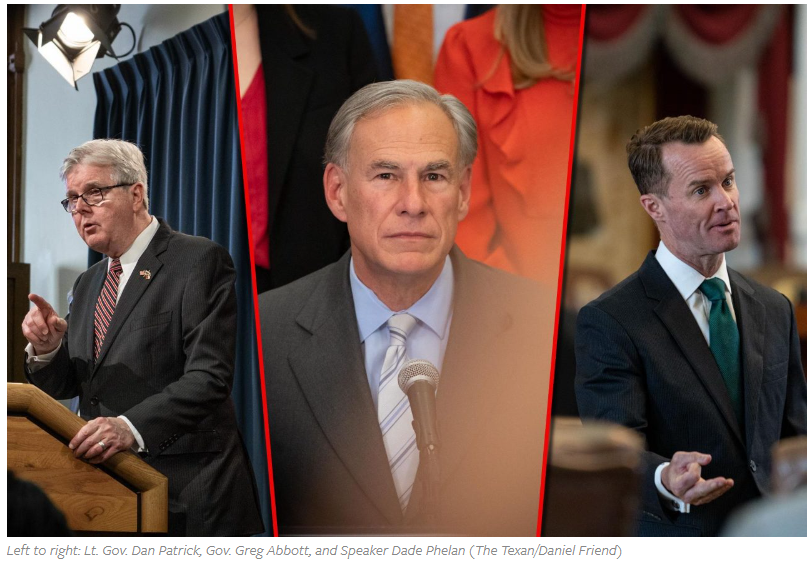
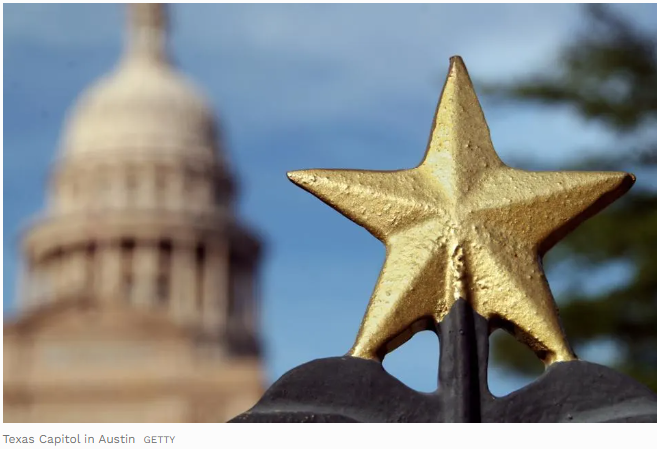
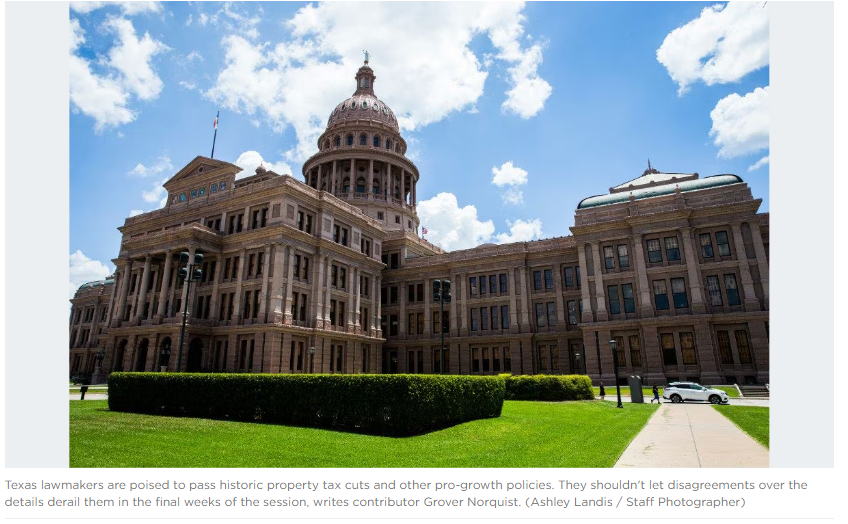
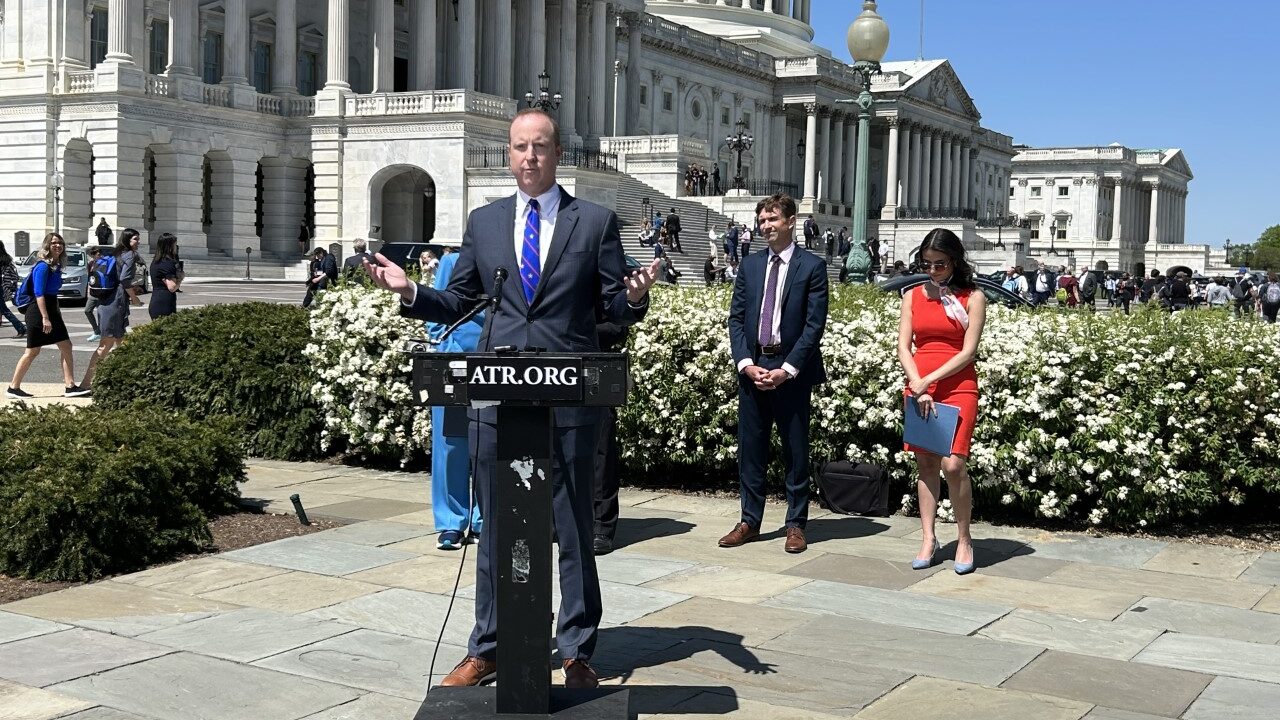
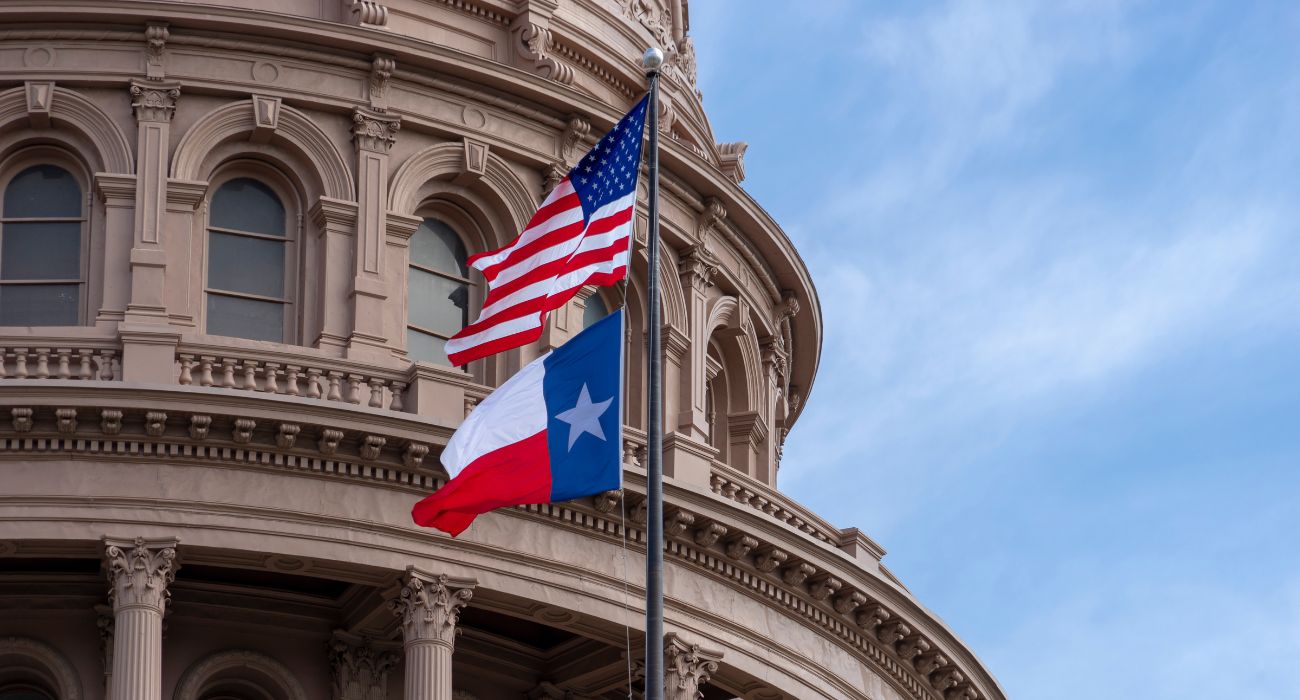

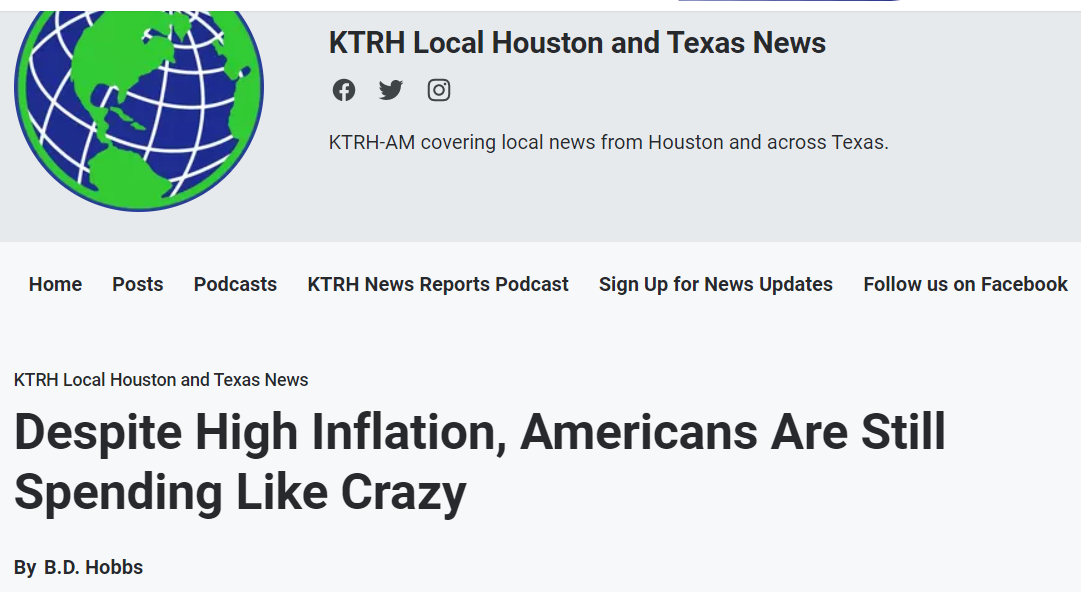




 RSS Feed
RSS Feed